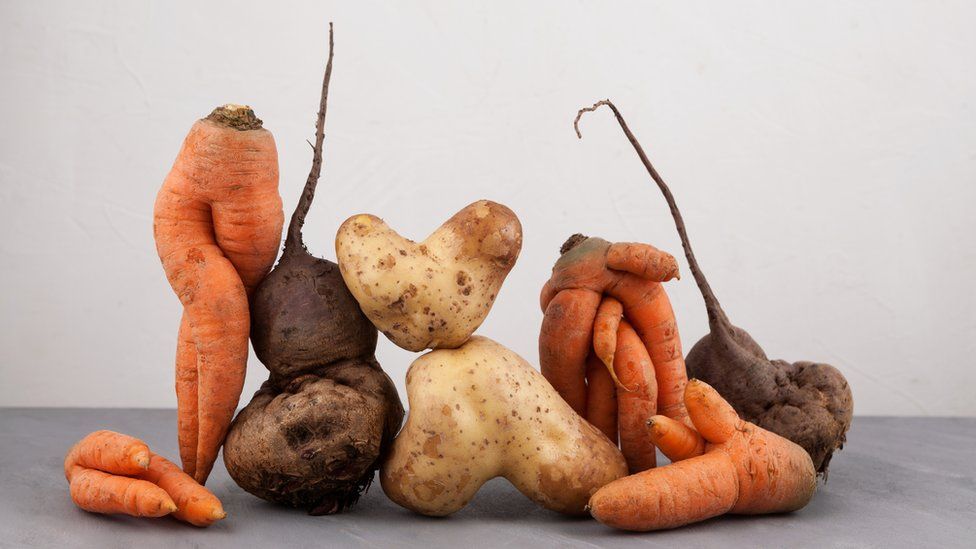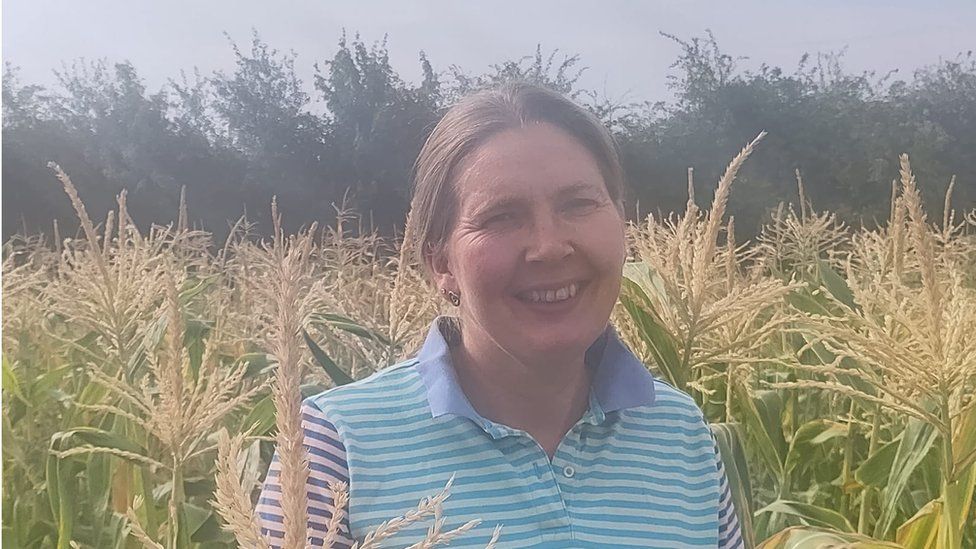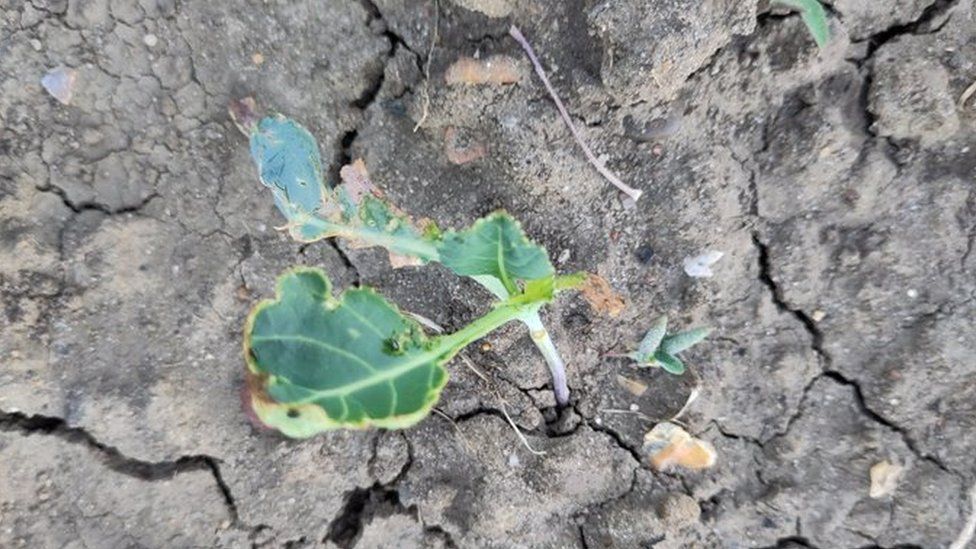 Getty Images
Getty ImagesFruit and vegetables on the shelves will be smaller and look different as the summer’s hot and dry weather hits crops, experts say.
Potatoes, onions, carrots, apples and Brussels sprouts are likely to be worst-affected.
Many areas of the UK have seen very low rainfall in 2022, and parts of England are in drought.
The National Farmers Union (NFU) wants supermarkets to accept more “wonky” produce and be flexible with growers.
Scientists say that heatwaves and drought will increase with climate change and that we must adapt to how this affects agriculture and our food.
In Essex, farmer Sarah Green’s fields are dusty and the grass crunches beneath her feet.
Her crops are “alive, but not growing or thriving”. The hot summer sun made her sweetcorn delicious, but smaller than usual and she’s had to lower her prices. Other crops still in the ground, like cauliflower, Brussels sprouts and broccoli, are stunted.

And in Herefordshire, farmer Ben Andrews said his “nice green” cabbage and kale were fine until a few days ago.
Now they’ve turned pale blue, he says. They feel leathery and tough, no longer crisp and lush.
These crops are still in the fields but soon they’ll be what we buy in supermarkets.
It’s too early to know how much UK produce will die due to drought, but “crop quality” will certainly be hit, Jerry Knox, professor of agricultural water management at Cranfield University, told BBC News.
More potatoes will be smaller, with lower quality skin and even some defects, he adds.
Vegetables this autumn and winter “may not look normal, but will taste the same”, Tom Bradshaw, vice-president of the NFU, says.
“Consumers have been conditioned to believe that a potato looks a certain way,” Mr Bradshaw says. To reduce the risk of even more price rises during a cost of living crisis, “we need to be more relaxed about appearance”, he adds.
A representative for the British Retail Consortium (BRC) told BBC News that supermarkets already accepted odd-shaped vegetables.
“Retailers understand weather conditions have been a challenge and have taken steps to support their farmers. This includes expanding ranges of odd-size/shape fruit and veg when needed,” says Hannah Dougherty, Food Policy Advisor at the BRC.
In Essex, rain is all Sarah Green and her family talk about. This year they’re measured 107mm of rainfall. Their annual average is 525mm.

This dryness means vegetables in the ground can’t get the moisture they need to keep growing, so they grow slower and don’t become full-size. Lack of water can make the skin tougher, or cause defects as the crop is stressed.
Potatoes are very vulnerable to drought in the UK where half the national crop is fed by rain, Prof Jerry Knox explains.
Harvesting the potatoes will be a challenge because it’s likely to be difficult to get the harvester into the hard ground, Sarah Green explains. It might form big clods that damage the crop or cut it into pieces.
Carrots, parsnips, onions will be affected in a similar way to potatoes, Prof Knox says.
By this point in the summer the “damage is done”, he says, and even significant rainfall isn’t enough to fix the stressed potatoes.
Farmers are also worried about brassicas like cauliflowers and broccoli planted in autumn. In many areas it’s feared the soil is too hard to dig and seeds won’t survive in parched ground.
The last time the UK had a drought was in 2018, but rains came just in time to save most crops. But this year the Met Office is forecasting several months of dry, warm weather.
Farmers could choose to sacrifice some crops, in order to fully water others, Prof Knox says. Gathering enough water over the autumn and winter will also be crucial to stop the effects of drought spreading into 2023.
But in the long-term scientists warn that parts of England, particularly the south-east, will become much drier due to climate change.
Farmers do adapt and some have changed the crops they grow, but the unpredictability of UK weather makes that risky.
Alastair Chisholm of the Chartered Institution of Water and Environmental Management says that in the long-term, adjustments to farming techniques like regenerative farming that helps soil store water, as well as investment in storage for winter rains, can be solutions.








